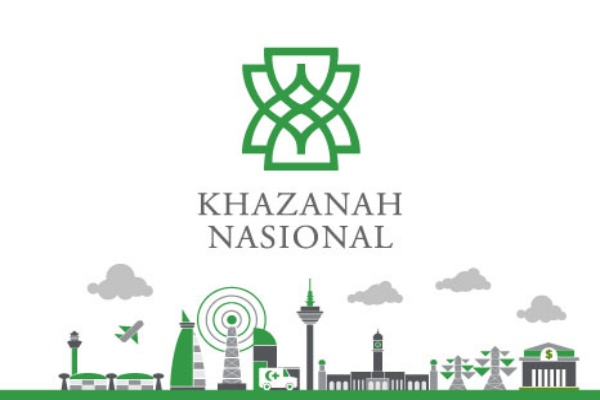News
Khazanah's asset divestment enables fund to crystalise investment
By Mohd Khairi Idham Amran
KUALA LUMPUR, July 5 (Bernama) -- Khazanah Nasional Bhd’s divestment of almost RM50 billion worth of assets in less than 10 years is to enable the sovereign wealth fund to crystallise the value of its investments and to fund its operations as well as investment activities.
Phillip Capital Management Asia-Pacific senior vice-president (Investment) Datuk Dr Nazri Khan Adam Khan said apart from funding Khazanah’s operations, the proceeds from the divestments are also used to fund bleeding strategic assets such as Malaysia Airlines.
“Khazanah is doing its best to execute its mandate which is to grow Malaysia’s long-term wealth, invest in strategic projects and help the government to boost the economy,” he told Bernama recently.
Nazri said another factor that could be influencing Khazanah’s investment activities is the shift in the country’s focus from traditional economy, such as petroleum and tourism, to digital economy.
Nevertheless, he said the fund must make new investments to compensate for assets which have been sold.
Economist-turned-entrepreneur Izzuddin Yusof said it is normal for a fund to divest its investment once the objective of the investment is met.
“Even sovereign funds have a limit and hence they have to continuously invest and divest for the best position,” he said.
He said as a strategic sovereign wealth fund dealing with the change in the government, it is understandable that the new government has a different idea on the direction of the economy.
However, Izzuddin said the divestment should be done gradually to avoid disrupting the economy and the financial market.
According to previous reports, Khazanah had indicated that asset divestments are a common business activity practiced by the fund.
From 2009 to 2017, the fund made 80 divestments worth RM45.30 billion, and the proceeds are normally used for new investments and debt reduction and not directly channeled to the government.
Unlike other sovereign wealth funds, pension/retirement funds or investment funds such as the Employees Provident Fund (EPF) and Permodalan Nasional Bhd (PNB), Khazanah does not receive any fixed capital injection from outside sources for its investments, it said.
For example, the EPF receives funds from regular employee contributions while PNB receives funds from its unit trust investors.
Khazanah said it deliberates over opportunities for disposal on a case-by-case basis based on financial and strategic targets, and certain assets can be considered for disposal as soon as the objectives and target returns are met.
The disposals also depend on the time and strength of the market as well as the availability, quality and credibility of the buyer, it said, adding that the principle applies to previous and future disposals.
-- BERNAMA
Other News
Sarawak Lepasi Sasaran Kapasiti Gabungan Tenaga Boleh Baharu Tahun Ini - Abang Johari

Oleh Nur Ashikin Abdul Aziz
SINGAPURA, 21 Okt (Bernama) -- Sarawak mencapai 62 peratus sasaran campuran kapasiti tenaga boleh baharu (TBB) tahun ini, melepasi sasaran 60 peratus yang digariskan dalam Strategi Pembangunan Pasca COVID-19 (PCDS) 2030.
Sarawak Pacu Pertumbuhan Tenaga Boleh Diperbaharui Untuk Manfaat ASEAN - Premier

SINGAPURA, 21 Okt (Bernama) -- Sarawak komited menyokong peralihan tenaga boleh diperbaharui di Asia Tenggara dengan memanfaatkan potensinya sebagai "Bateri ASEAN," yang akan membekalkan tenaga bersih menerusi sambungan Grid Kuasa Borneo dan ASEAN.
Belanjawan 2025 Percepat Peralihan Kepada Tenaga Bersih - Solarvest

KUALA LUMPUR, 19 Okt (Bernama) -- Belanjawan 2025 merupakan satu langkah ke arah mempercepat peralihan kepada tenaga bersih di Malaysia, kata Solarvest Holdings Bhd.
© 2025 BERNAMA. All Rights Reserved.
Disclaimer | Privacy Policy | Security Policy This material may not be published, broadcast,
rewritten or redistributed in any form except with the prior written permission of BERNAMA.
Contact us :
General [ +603-2693 9933, helpdesk@bernama.com ]
Product/Service Enquiries [ +603-2050 4466, digitalsales@bernama.com ]
